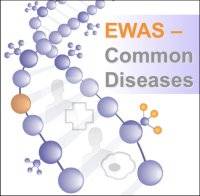(Pre-July 2015)
Project Leader: Dr Dirk Paul
Background
Genome-wide association studies (GWAS) have been very successful in identifying genetic variation associated with complex traits including common diseases. However, a substantial proportion of the causality remains unexplained. Epigenetic variation affects genome function and thus can contribute to the aetiology of common diseases. Recent advances in genomic technologies have enabled systematic, large-scale studies of human disease-associated epigenetic variation, specifically variation in DNA methylation. Such epigenome-wide association studies (EWAS) present exciting opportunities for the investigation of disease mechanisms, but also create new challenges that are not encountered in GWAS, such as study design, cohort and sample selections, statistical significance and power, confounding factors and follow-up studies (Rakyan V.K. et al (2012), Nat. Rev. Genet. 12, 529-541; Paul D.S. & Beck S. (2014), Trends Mol. Med. 20, 541-543). A particularly promising area of research is the integrative analysis of GWAS and EWAS to investigate GWAS haplotypes that exert their effect on phenotype through epigenetic mechanisms (see also: EpiTrain Consortium).
Current Projects
DNA methylation variation in type I diabetes
As part of the BLUEPRINT Consortium, we aim to identify variation in DNA methylation associated with type 1 diabetes mellitus (T1DM). We have collected immune effector and control cell types from monozygotic twins discordant for T1DM, including CD4+ lymphocytes, CD14+CD16- monocytes, CD19+ B cells and buccal cells. In addition, we have collected Guthrie card samples from progressors and non-progressors to T1DM, and peripheral lymph node and spleen samples of both T1DM cases and healthy controls. Our initial aim is to pre-screen the monozygotic twin pairs discordant for T1DM using the Illumina 450K array platform and whole-genome bisulphite sequencing in selected immune effector cells. Overall, we aim to generate DNA methylation profiles in a total of 1,000 samples. The analysis will include validation of the T1DM methylation signature using a targeted bisulphite sequencing platform, such as RainDrop BS-seq (see: Methylome Analysis), integration with GWAS data, biological pathway analysis and functional follow-up.
Project Members:
- Dirk Paul
- Charles Breeze
- Emanuele Libertini
Collaborators:
- Queen Mary University of London: David Leslie, Stephanie Cunningham, Mary Dang, Mohammed Hawa, Claire Bedford, Vardhman Rakyan, Rob Lowe
- Lund University: Ake Lernmark
- Ulm University: Bernard Boehm
- BLUEPRINT Consortium
Past Projects
We have previously performed epigenome-wide association studies for the following common diseases:
- Diabetic nephropathy: Bell C.G. et al (2010), BMC Med. Genomics. 3, 33
- Type II diabetes: Bell C.G. et al (2010), PLoS ONE 5, e14040
- Type I diabetes: Rakyan V.K. et al (2011), PLoS Genet. 7, e1002300
- Ulcerative colitis: Häsler R. et al (2012), Genome Res. 22, 2130-2137
- Pain sensitivity: Bell J.T. et al (2014), Nat. Commun. 5, 2978
 Close
Close



